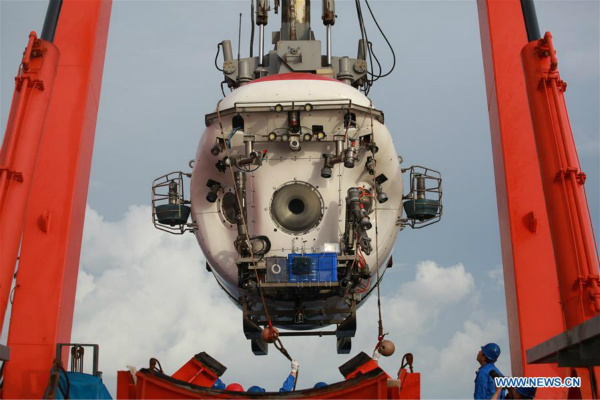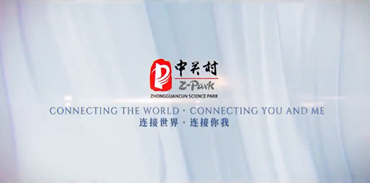China firm on closing tech gap with the world
 |
|
Submersible Jiaolong is about to dive into water in the Mariana Trench on May 23, 2017. [Photo/Xinhua] |
Considering innovation as the primary driving force of development, the central leadership has been taking effective measures to bridge China's gap in technological progress with international advanced levels, especially in key and core technologies.
Over the past few years, much has been accomplished toward making China a country of innovation and innovators, with great progress made in science and technology, including the successful launch of the Tiangong-2 space lab, the commissioning of the manned deep-sea research submersible Jiaolong, and the test flight of the airliner C919.
The China Innovation Index, a barometer of innovation capability compiled by the National Bureau of Statistics, has seen a steady rise over the past decade. In fact, this year, China broke into the top 20 most-innovative economies, according to the annual Global Innovation Index published on July 10 by Cornell University and the World Intellectual Property Organization, climbing from 22nd position last year to 17th.
But these achievements should not be an excuse for complacency. "The level of technological development, especially in key and core technologies, still has a large gap with internationally advanced levels and is unable to meet the requirements of achieving the two centenary goals," read a document issued on July 13 after a meeting of the Central Financial and Economic Affairs Commission of the Communist Party of China Central Committee.
The contribution of China's scientific and technological development to economic growth, too, lags far behind that in developed countries.
Key and core technologies are crucial to a country's economic development, and in China's case, they are greatly responsible for promoting high-quality economic development and maintaining national security.
More important, on July 13 President Xi Jinping gave a call to improve China's innovation capability in core technologies of key sectors to push forward the country's development. Presiding over the second meeting of the commission, Xi, who is also the general secretary of the CPC Central Committee, said key and core technologies in crucial sectors are pillars of China's development and vital to facilitating the country's high-quality development and safeguarding national security.
It is imperative to gain the initiative in technological development, Xi said. Thus, strengthening China's innovation capability for key and core technologies and keeping a firm hold on the initiative of scientific and technological development will offer a strong technological guarantee for the country's overall development.
China should enhance basic research and seek major breakthroughs in independent technological innovation, the commission document said, while calling for an increased sense of urgency.
To achieve that goal, the commission said it was important to establish a mechanism to enhance the development of key and core technologies, and to focus more on targeted planning of related systems and new platforms.
China should also streamline the management of major scientific and technological research programs, give research and development institutions and staff more say, and nurture more outstanding and dedicated young scientists and research teams led by top scientists.
Therefore, despite the pressing challenges they face, scientists and technology experts have to shoulder the responsibilities bestowed on them by history and become vanguards of innovation.

